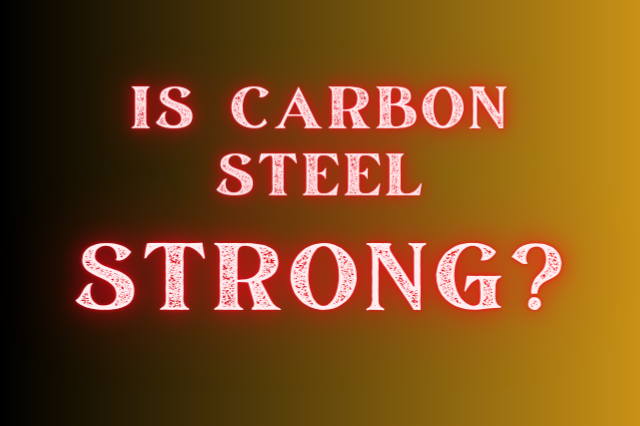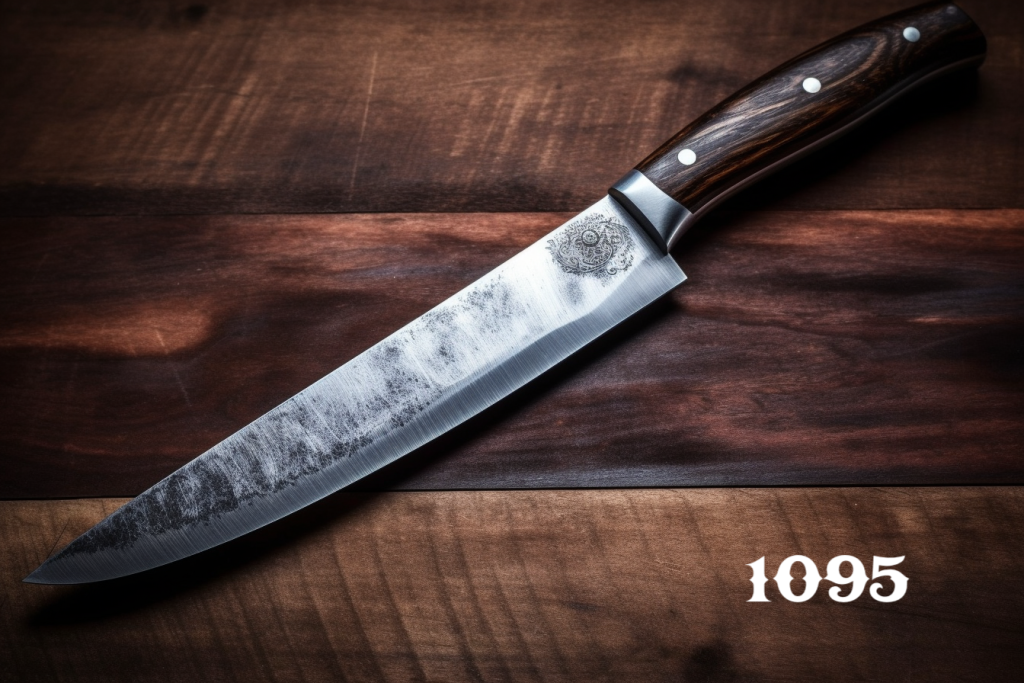
In this blog post, we will answer the question: Is carbon steel strong?
We’ll explore its inherent properties and highlight its applications in demanding environments.
When it comes to strength, carbon steel is often considered a reliable choice in various industries.
Carbon Steel’s Composition: A Solid Foundation
Carbon steel, primarily composed of iron and carbon, boasts inherent strength due to its chemical makeup.
The carbon content contributes to its overall hardness and toughness, making it a robust material for numerous applications that require strength and durability.
Here is a list of the combined elements in two types of carbon steel:
1045
- Fe – 98.7%
- Mn – 0.8%
- Sulfur – 0.05%
- Carbon – 0.45%
- Phosphorous – 0.04%
1045 is a mid-range, high carbon steel. It’s sheer strength is 59 ksi and its ultimate tensile strength is 90.6 ksi.
To compare, 1018 steel has a sheer strength of 43 ksi and its ultimate tensile strength is 63.8 ksi.
1018 has almost one-third the carbon content of 1045 and it won’t properly harden:
1018
- Fe – 98.81-99.26%
- Mn – 0.6-0.9%
- Sulfur – 0.05%
- Carbon – 0.14-0.20%
- Phosphorous – 0.04%
*A wider variety of carbon steels, including 1075 and 1095, can be found at OnlineMetals.com. You will also find materials data sheets on each steel.
Structural Integrity: Withstanding Heavy Loads
Carbon steel exhibits remarkable structural integrity, enabling it to withstand heavy loads and resist deformation.
Its strength allows for the construction of sturdy and reliable structures, such as buildings, bridges, and machinery components, ensuring long-lasting performance in demanding environments.
Strength-to-Weight Ratio: Optimizing Efficiency
Carbon steel offers an excellent strength-to-weight ratio, meaning it provides high strength while maintaining a relatively lightweight structure.
This characteristic makes it advantageous for applications where minimizing weight is crucial, such as in automotive manufacturing, aerospace engineering, and structural design.
Resistance to Wear and Fatigue: Endurance Under Pressure
Carbon steel’s strength extends to its resistance to wear and fatigue.
It can withstand repeated stress and strain without significant deterioration, making it suitable for tools, machinery parts, and equipment subjected to demanding and high-stress conditions, ensuring reliability and longevity.
Applications of Strong Carbon Steel: Diverse Industries

The strength of carbon steel finds application in a wide range of industries, including construction, manufacturing, automotive, oil and gas, and infrastructure development.
It is utilized in structural components, pipelines, machinery parts, cutting tools, and much more, highlighting its versatility and reliability in various sectors.
For blacksmithing, it’s the largest category of steel we work with.
Conclusion
In summary, carbon steel is undeniably a strong material, possessing inherent strength, structural integrity, resistance to wear and fatigue, and a favorable strength-to-weight ratio.
Its application in diverse industries reinforces its reputation as a reliable choice for demanding environments that require robustness and durability.